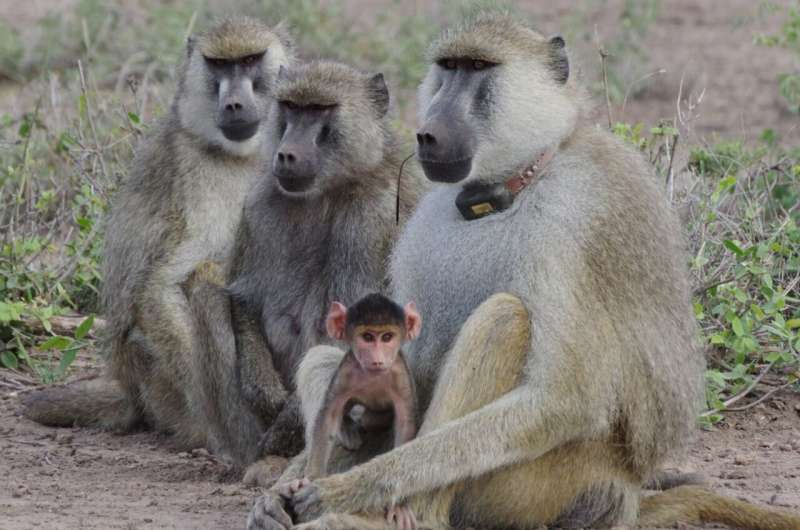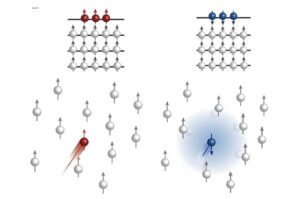
In a groundbreaking study published on July 5, 2025, researchers from the University of Notre Dame have unveiled that father-daughter bonding in baboons can significantly impact the lifespan of female offspring. This research, appearing in the Proceedings of the Royal Society B, highlights the profound effects of paternal relationships on the survival of female baboons in the wild.
While it is uncommon for mammalian fathers to provide care, the study reveals that when they do, it can lead to substantial benefits for their daughters. The research team, led by Elizabeth Archie, a professor of biological sciences at Notre Dame, examined the role of father baboons in the Amboseli ecosystem of East Africa. They found that daughters who maintained strong early-life relationships with their fathers lived two to four years longer than those who did not.
Exploring the Dynamics of Baboon Social Structures
The study focused on 216 female baboons, analyzing their interactions with their fathers and other adult males. About one-third of these daughters lived in the same social group as their fathers for at least three years, while the rest had fathers who either left the group or passed away within their first three years of life. Researchers assessed grooming habits, a crucial social activity, to gauge the strength of these relationships.
“Male baboons tend to reach their peak reproductive success when they’re young adults,” said Elizabeth Archie. “But once they’ve had a few kids and their condition declines, they sort of slide into ‘dad mode,’ where they don’t disperse as much and they don’t try as hard to mate. Then they have time to invest in and hang out with their kids.”
Grooming, which serves both hygienic and social bonding purposes, was likened by Archie to the “human equivalent of sitting down, having a cup of coffee and a good chat.” The study found that daughters with strong paternal ties or who co-resided with their fathers for extended periods enjoyed longer lifespans.
Implications for Understanding Mammalian Parental Care
The findings challenge the traditional view that mammalian fathers contribute little to offspring care. Archie suggests that even seemingly minor paternal contributions have significant consequences, at least in baboons. The study also noted that strong grooming relationships were more prevalent among father-daughter pairs that lived together longer, whereas such relationships with other adult males did not predict survival outcomes.
“Early life adversity has a powerful effect on lifespan, so this study suggests that having a dad allows females that have experienced other forms of adversity to recover some of those costs,” Archie explained.
Male baboons may also play a protective role, intervening in conflicts to shield their daughters and their mothers from group aggression. This protective behavior could expand a child’s social network, offering a “safety zone” that enhances their social interactions and overall well-being.
Broader Implications and Future Research
This research is part of the larger Amboseli Baboon Research Project, one of the longest-running primate studies worldwide, co-directed by Archie, Susan Alberts from Duke University, and Jenny Tung at the Max Planck Institute for Evolutionary Anthropology. The study’s findings may offer insights into the evolutionary roots of human parental care, suggesting that paternal involvement has deeper biological and social implications than previously understood.
As the study continues, researchers aim to explore further how these dynamics play out across different environments and species. The implications of this research extend beyond baboons, potentially informing conservation strategies and enhancing our understanding of social structures in other species.
For more detailed information, the full study can be accessed through the Proceedings of the Royal Society B with the DOI: 10.1098/rspb.2025.0194.






